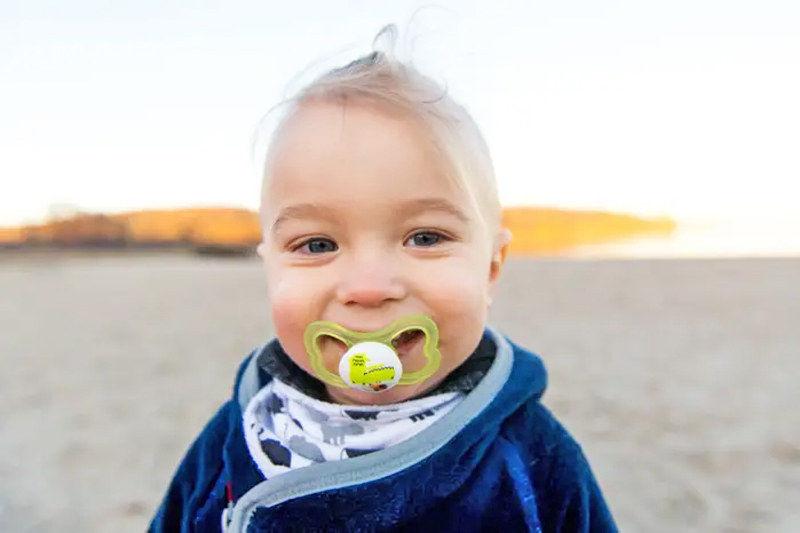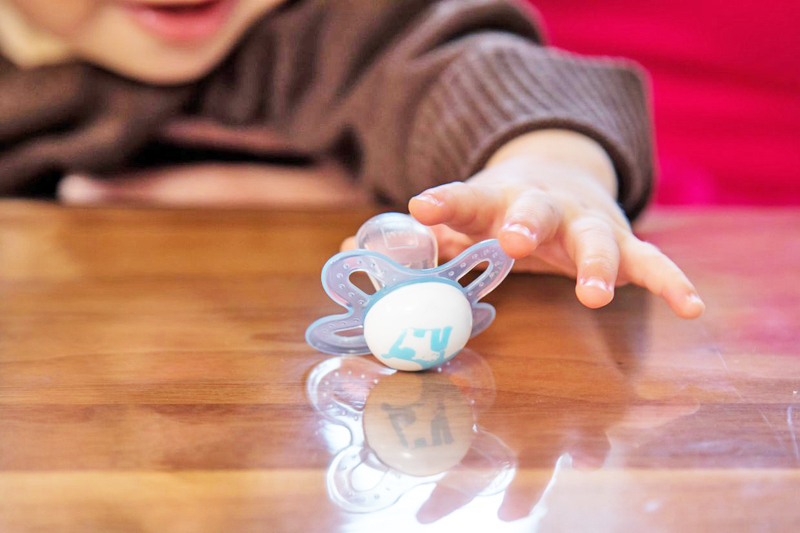GERMANY – Whatever you call it dummies, pacifiers, soothers or binkiesartificial nipples are said to cause children’s teeth to be misaligned, interfere with breastfeeding and prevent speech development.
Parents who surf the Internet to find out the pros and cons mostly find it brings more cons.
Objections to the use of pacifiers have become popular in recent years, said Germany-based childcare advice author Nora Imlau.
But do moms and dads need to worry if their little one likes to suck on artificial nipples?
After all, generations of parents before them have used pacifiers to soothe their children.


“Newborn children, and older children as well, have a sucking reflex,” explained Imlau. It can be satisfied when they are hungry and suckle at their mother’s breast, he said, and also when they are not hungry.
“If the child’s need to suck is strong, they can spend 10 hours a day at their mother’s breast.”
While some mothers don’t have a problem, ‘for others it’s not wrong to give the child a pacifier as an extra way to help them adjust.’
In Germany, according to Imlau, the use of pacifiers is officially recommended to reduce the risk of sudden infant death syndrome (SIDS), the sudden and unexplained death of children under the age of one.
“Several studies have proven that sucking on a pacifier at night protects children from deep sleep, where sleep apnea (i.e. frequent breathing disorders during sleep), a known risk factor for SIDS, can occur,” he said.
Although the subject is much discussed – some people argue that breastfeeding also helps protect against SIDS – Germany’s official recommendation that pacifier use can reduce the risk of SIDS is often ineffective, Imlau said.
The reason, he assumes, is that the debate has been influenced by emotions, especially in social networks, where some false prejudices spread on social media – for example, nipples are harmful and encourage addiction.
However, there are no scientific facts that prove its truth.
USE AGAINST
Children who use nipples alternately also do not have speech development problems, he said.
“The only thing we know is that excessive pacifier use increases the risk of middle ear infections. You need to keep an eye on him.”
What is the use of ‘alternately?’
In Imlau’s view, children do not need pacifiers when their emotions are well controlled, for example during play or reading activities, but they do need them when they are emotionally disturbed, tired or in an unfamiliar place.
“There is no evidence to suggest this level of use poses a risk in any way,” he said. “For some children, the pacifier is their only means of self-control, and they have a pacifier in their mouth day and night. This in turn can cause problems.”
However, some parents feel apprehensive about using pacifiers at all.
Isn’t it considered interfering with breastfeeding? Here, a warning should be given, says Imlau, “Children who constantly use pacifiers after they start breastfeeding may show the wrong sucking pattern on the breast.”
This is why mothers should not give a newborn child a pacifier immediately after birth, and only give it later in a limited way. It should be given ‘sensitively and oriented towards the close relationship between child and mother,’ he shared.
“You give it when you realize the child has a need to suck at that time. If they spit it out, don’t put it back in their mouth right away, but look and see if the child is satisfied with sucking and needs something else.”
It’s a matter of “frequency and handling,” he said, also due to the possibility of tooth decay.
“Yes, excessive pacifier use can cause what’s called an open bite,” where a child’s permanent teeth grow in incorrectly and may later need braces to correct them.
“But first of all, even if this could happen, it doesn’t have to happen,” Imlau said.
“And secondly, it’s more than just teeth. They are human beings shaped by habits that give them emotional security.”
For this reason, he says, he finds problems arise when doctors urge parents to break the habit of using pacifiers in the first months of their newborn’s life – in other words, to throw away the self-control device that the little one is used to.
“Psychologically, it is difficult. Personally – as a mother of four children, one of whom uses pacifiers – I have always prioritized my child’s well-being over the possibility of misaligned teeth.”
This does not mean you can use nipples indiscriminately, he said.
“So forget about it from time to time, don’t always offer it all the time, instead ask the child: ‘Do you want a hug?’ ‘Can I sing something for you?’” – ANN/The Star

